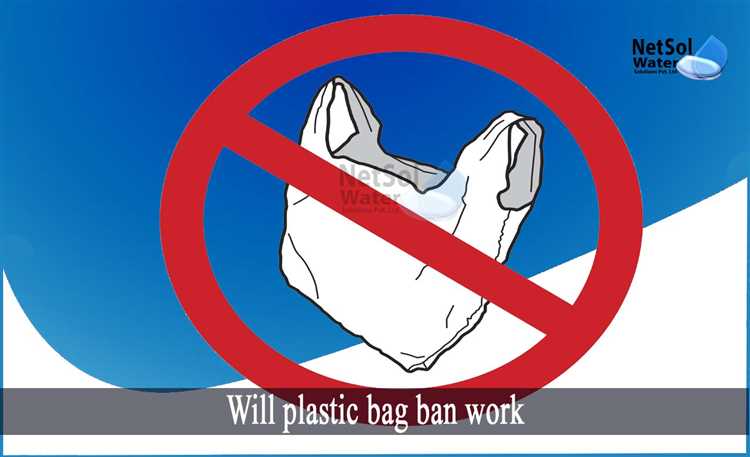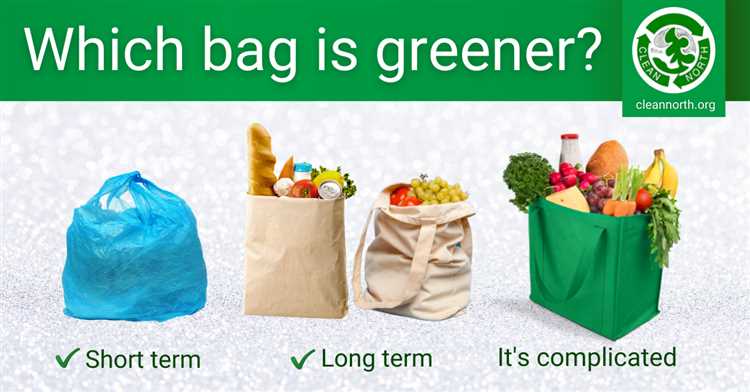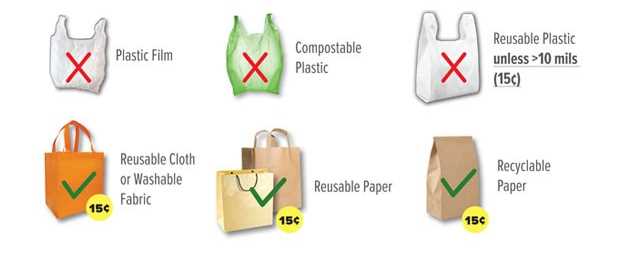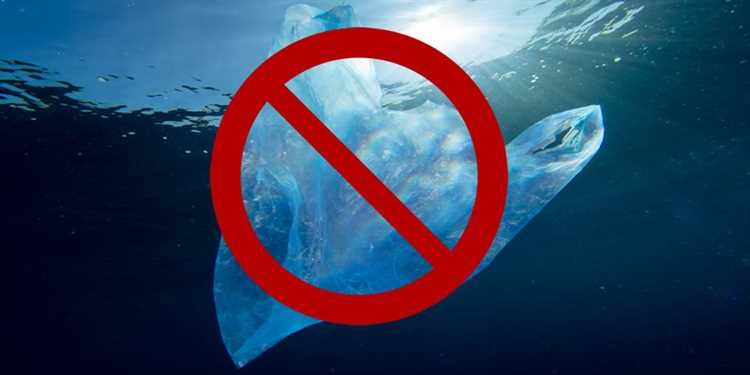
Plastic bags have become one of the most ubiquitous and harmful forms of waste in our modern society. While they may seem convenient and lightweight, the negative impact they have on our environment is staggering. As such, many countries and cities around the world are implementing bans on plastic bags, and for good reason. There are several compelling arguments in support of this ban that highlight the urgent need for change.
Firstly, plastic bags are a major contributor to pollution. They often end up in our waterways, forests, and natural habitats, where they take hundreds of years to break down. These bags are not biodegradable, which means they persist in the environment indefinitely, causing harm to wildlife and ecosystems. Marine animals, such as sea turtles and dolphins, can mistake plastic bags for food, leading to illness and death. By banning plastic bags, we can significantly reduce this pollution and protect our fragile ecosystems.
Secondly, the production and disposal of plastic bags have a significant carbon footprint. The process of manufacturing plastic bags requires large amounts of energy and contributes to greenhouse gas emissions. Additionally, the disposal of plastic bags often involves incineration or landfilling, both of which release harmful pollutants into the atmosphere. By eliminating plastic bags, we can reduce our reliance on fossil fuels and combat climate change.
Lastly, plastic bags are a waste of valuable resources. The production of these bags relies on the use of finite resources, such as petroleum and natural gas. These resources could be better utilized in other sectors or conserved for future generations. By banning plastic bags, we can encourage the use of alternative materials, such as reusable bags, which are more sustainable and environmentally friendly.
In conclusion, the ban on plastic bags is a necessary step towards protecting our environment and promoting a more sustainable future. The detrimental impact of plastic bags on our ecosystems, their contribution to pollution and climate change, and the wasteful use of resources make banning them a logical and responsible choice. By supporting this ban, we can make a positive difference in the world and preserve our planet for future generations.
- The Environmental Impact of Plastic Bags
- 1. Pollution and litter
- 2. Wildlife and habitat destruction
- Reducing Pollution and Protecting Wildlife
- Decreasing Landfill Waste
- Recycling Programs
- Landfill Space Conservation
- Promoting Sustainable Alternatives
- Reusable Bags
- Paper Bags
- The Health Effects of Plastic Bags
- 1. Harmful Chemicals
- 2. Potential Allergenic Reactions
- Improving Public Health
- What are some of the reasons to support the ban on plastic bags?
- Does banning plastic bags really make a difference?
- Are there any benefits to using plastic bags?
- Do people support the ban on plastic bags?
- What can individuals do to support the ban on plastic bags?
The Environmental Impact of Plastic Bags

Plastic bags have become a major environmental concern due to their negative impact on the environment. These bags are made from non-renewable resources such as oil and natural gas, which are finite in supply. The manufacturing process of plastic bags also contributes to air and water pollution.
1. Pollution and litter
Plastic bags are one of the main contributors to pollution and litter. They are lightweight and easily carried by wind and water, which means they can travel long distances and end up in rivers, lakes, oceans, and other natural habitats. Marine animals often mistake plastic bags for food, leading to ingestion and suffocation. The presence of plastic bags in the environment not only affects marine life but also disrupts the entire ecosystem.
2. Wildlife and habitat destruction
The environmental impact of plastic bags extends beyond pollution and litter. These bags can cause significant harm to wildlife and their habitats. Birds, turtles, and other animals can become entangled in plastic bags, leading to injury or death. The destruction of natural habitats due to plastic bags can also disrupt ecosystems and result in the loss of biodiversity.
| Environmental Impact | Description |
|---|---|
| Pollution and litter | Plastic bags contribute to pollution and litter, causing harm to animals and ecosystems. |
| Wildlife and habitat destruction | Plastic bags can harm wildlife through entanglement and destroy their natural habitats. |
Considering the significant environmental impact of plastic bags, banning their use is a necessary step in preserving our planet. Alternative options such as reusable bags and biodegradable alternatives should be encouraged to reduce the harmful effects on the environment.
Reducing Pollution and Protecting Wildlife

Plastic bags are a major source of pollution and pose a significant threat to wildlife. When they are improperly disposed of, they can end up in waterways, where they can harm marine wildlife and contaminate the water. Animals such as turtles, dolphins, and seabirds can mistake plastic bags for food and ingest them, leading to serious health problems and even death.
Furthermore, the production and disposal of plastic bags contribute to air and land pollution. Plastic bags are made from non-renewable fossil fuels, and their production releases greenhouse gases and other pollutants into the atmosphere. When they are discarded in landfills, they take hundreds of years to decompose, releasing toxic chemicals into the soil and water.
By implementing a ban on plastic bags, we can significantly reduce pollution and protect wildlife. Alternative options such as reusable bags and paper bags are more environmentally friendly and do not pose the same risks to wildlife. Reusable bags can be used over and over again, reducing the amount of waste generated and the need for plastic bag production.
In addition, implementing a ban on plastic bags can encourage individuals to be more conscious of their consumption habits. It can serve as a reminder to reduce overall plastic usage and opt for more sustainable alternatives. This shift in behaviour can have a positive impact on the environment and help protect wildlife for future generations.
Overall, supporting the ban on plastic bags is crucial for reducing pollution and protecting wildlife. It is a simple and effective step towards a cleaner and healthier environment.
Decreasing Landfill Waste
A significant reason to support the ban on plastic bags is the positive impact it has on decreasing landfill waste. Plastic bags are not biodegradable and can take hundreds of years to break down, contributing to the buildup of waste in landfills. By eliminating the use of plastic bags, we can reduce the amount of non-biodegradable waste that ends up in landfills and reduce the need for new landfill space.
Furthermore, plastic bags often end up as litter, which can have detrimental effects on our environment. They can clog storm drains and waterways, leading to flooding and other water-related issues. Animals can also mistake plastic bags for food and ingest them, leading to injury or death.
By opting for alternatives like reusable bags, we can significantly decrease the amount of plastic waste that ends up in landfills. Reusable bags are made from materials like cloth or canvas, which are more environmentally friendly and can be reused multiple times. Many grocery stores now offer reusable bag options, and some even provide incentives for customers who bring their own bags, further encouraging the use of more sustainable options.
Recycling Programs
In addition to using reusable bags, recycling programs can also help decrease landfill waste. Many communities have implemented recycling programs that accept various types of plastics, including plastic bags. By properly disposing of plastic bags through recycling, we can divert them from landfills and give them a second life as new products.
Landfill Space Conservation
Reducing landfill waste by eliminating plastic bags can also help conserve valuable landfill space. As the population continues to grow and consumption increases, landfill space becomes more limited. By choosing to ban plastic bags and promote the use of reusable options, we can extend the lifespan of existing landfills and reduce the need for new ones, saving valuable land resources.
Promoting Sustainable Alternatives
In order to reduce the reliance on plastic bags and promote a more sustainable future, it is important to explore and implement alternative options. Numerous environmentally friendly options are available, which not only provide a substitute for plastic bags but also offer additional benefits.
Reusable Bags
A popular alternative to plastic bags is the use of reusable bags. These bags are usually made from eco-friendly materials such as cotton, jute, or canvas. They are durable and can be used multiple times, reducing the need for single-use plastic bags. Furthermore, reusable bags are often more spacious and sturdy, making them ideal for carrying heavy groceries or other items.
Many retailers have started offering reusable bags to their customers, sometimes even encouraging their use by offering discounts or rewards for bringing them. This helps to promote a culture of sustainability and encourages individuals to make the switch from plastic bags to reusable ones.
Paper Bags
Paper bags are another viable alternative to plastic bags. Unlike plastic bags, paper bags are biodegradable and can be easily recycled. They can be made from sustainable sources such as recycled paper or FSC-certified paper, reducing their environmental impact. Additionally, paper bags are often sturdier than plastic bags and can be reused multiple times before recycling.
Some stores have already replaced plastic bags with paper bags, and more businesses are starting to follow suit. By using paper bags, consumers can help reduce plastic waste and contribute to a more environmentally friendly shopping experience.
In conclusion, promoting sustainable alternatives to plastic bags is crucial in order to address the problems associated with their usage. Reusable bags and paper bags are just a few examples of the many alternatives that consumers and retailers can embrace. By making the switch to these options, we can reduce our reliance on plastic bags and take a step towards a greener and more sustainable future.
The Health Effects of Plastic Bags
Plastic bags, although convenient and widely used, have detrimental health effects on both humans and animals. The chemicals and toxins present in plastic bags can pose serious risks to our well-being.
1. Harmful Chemicals
Plastic bags are made from high-density polyethylene (HDPE) or low-density polyethylene (LDPE), both of which contain a number of harmful chemicals. These chemicals include phthalates, bisphenol A (BPA), and lead, among others. When these chemicals come into contact with food or water, they can leach into it and be ingested by humans, leading to a variety of health problems.
Phthalates, for example, are known to disrupt hormone levels and have been linked to reproductive issues, such as reduced fertility and developmental disorders. BPA, another common chemical found in plastic, has been linked to an increased risk of cancer, obesity, and diabetes. Lead, a toxic heavy metal, can cause neurological damage and impair brain development in children.
2. Potential Allergenic Reactions
Plastic bags can also cause allergic reactions in some individuals. The dyes and additives used to color and stabilize the plastic can trigger skin rashes, itching, and redness, especially in people with sensitive skin. These reactions may be exacerbated when the bags are reused or come into prolonged contact with the skin.
Furthermore, the accumulation of dust, dirt, and pollen on the surface of plastic bags can cause respiratory allergies such as hay fever and asthma. Individuals with asthma or other respiratory conditions may experience exacerbation of their symptoms when exposed to plastic bag particles in the air.
It is important to note that while these health effects may not be immediate or severe, long-term exposure to plastic bag chemicals can have cumulative detrimental effects on our overall health and well-being.
In conclusion, the health effects of plastic bags cannot be ignored. The presence of harmful chemicals and the potential for allergic reactions make it necessary to support the ban on plastic bags in order to protect our health and the health of our environment.
Improving Public Health

Plastic bags can be harmful to our health and the environment. They are made from petroleum, a non-renewable resource, and take hundreds of years to decompose. As they break down, they release toxic chemicals into the soil and water, which can contaminate our food and drinking water.
By banning plastic bags, we can protect our public health. Studies have shown that these bags contribute to air and water pollution, increasing the risk of respiratory problems, cancer, and other serious health issues. Plastic bags also pose a threat to wildlife, as animals can mistake them for food and choke on them or become entangled.
Furthermore, the production of plastic bags releases greenhouse gases, contributing to climate change. By reducing our reliance on plastic bags, we can reduce carbon emissions and mitigate the effects of global warming. This can lead to improved air quality and a healthier environment for everyone.
Implementing a ban on plastic bags is a proactive step towards improving public health. It encourages individuals to adopt more sustainable practices and reduces our overall plastic waste. By promoting the use of reusable bags and alternative packaging options, we can create a healthier future for ourselves and future generations.
What are some of the reasons to support the ban on plastic bags?
There are several reasons to support the ban on plastic bags. One of the main reasons is the environmental impact of plastic bags. They are made from non-renewable resources and contribute to pollution and climate change. Plastic bags also pose a threat to wildlife, as animals can become entangled in them or mistake them for food. Additionally, plastic bags do not easily break down and can take hundreds of years to decompose.
Does banning plastic bags really make a difference?
Yes, banning plastic bags can make a significant difference in protecting the environment. By reducing the use of plastic bags, we can reduce pollution, conserve resources, and prevent harm to wildlife. Banning plastic bags encourages the use of reusable alternatives like cloth bags or biodegradable options. It also raises awareness about the importance of reducing single-use plastics and encourages individuals and businesses to adopt more sustainable practices.
Are there any benefits to using plastic bags?
While plastic bags may provide convenience in the short term, the negative impacts far outweigh any potential benefits. Some argue that plastic bags are useful for carrying groceries or other items, but there are many alternatives available that are more sustainable. Reusable bags, for example, can be used over and over again, reducing waste and conserving resources. Additionally, many stores now offer paper bags or biodegradable options as alternatives to plastic.
Do people support the ban on plastic bags?
Yes, there is a growing movement of people who support the ban on plastic bags. Many individuals are becoming more aware of the environmental impact of plastic bags and are taking action to reduce their use. Governments and lawmakers are also recognizing the need to address plastic pollution and are implementing bans and taxes on plastic bags. Businesses and retailers are also starting to make changes by offering reusable bags or encouraging customers to bring their own bags.
What can individuals do to support the ban on plastic bags?
Individuals can take several steps to support the ban on plastic bags. Firstly, they can start by refusing plastic bags and opting for reusable alternatives. By bringing their own bags when shopping or using cloth bags for groceries, individuals can help reduce the demand for plastic bags. Additionally, individuals can support local businesses or retailers that have embraced the ban on plastic bags and offer sustainable alternatives. Finally, individuals can spread awareness about the importance of reducing single-use plastics and encourage others to join the movement.